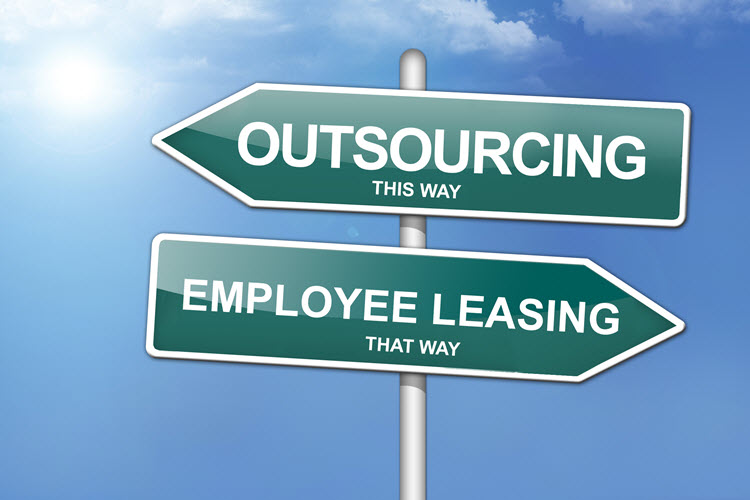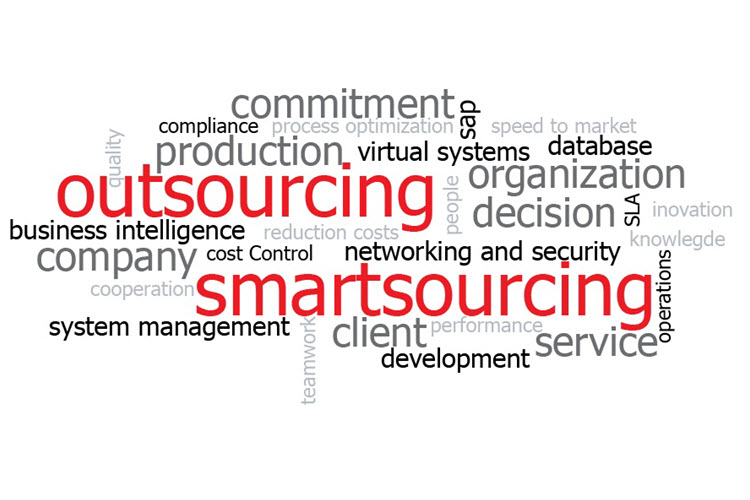Whilst the header on our blog this week mentions Outsourcing versus Employee Leasing, we should mention a third option being “DIY outsourcing”.
So there are three options accountants may consider when looking at increasing Australian bookkeeping/accounting/tax compliance capacity within their firm.
- Business Processing Operation (BPO)
- Employee Leasing, sometimes referred to as Seat Leasing
- “Do it yourself” leasing
BPO generally allows the firm to create instant capacity, but require the accounting firm to have less control. It’s important then to conduct a decent due diligence, and seek to work with a professional BPO firm who can produce quality work within an agreeable timeframe. It’s more than likely that the BPO is setup to accept large numbers of jobs, with the likelihood that if you send large amounts of work in a short period of time you will see multiple people working on the jobs. This isn’t an issue for a quality BPO firm, but when the BPO firm doesn’t have good systems in place can result in varying quality of work returned. The end result is the Accounting firm has to spend time reviewing all jobs, using more experienced and costly reviewers in the Australian Accounting firm. Good BPO firms will be on top of security, and have standardized working papers.
Employee leasing or Seat Leasing, has around for over a decade with the seat leasing offers coming from India offering experienced resources at either (i) the price you are likely to pay in Australia e.g. $5,000 per month or (ii) the price the provider pays for the resources, plus some markup to cover the training, seat fee and profit e.g. $2,500 to $3,500 per month.
More recently the Philippines has come online, though hasn’t been a country associated with Australian accounting outsourcing so doesn’t have the depth of experienced Australian tax accountants on offer. So the offer coming from the Philippines has been the offer of untrained resources at prices starting at $200 to $1,000 monthly for the seat fee, with the fully loaded cost of the employee’s salary added on top averaging $1,000 monthly upwards. Certainly there has been interest by Australian accountants for the cheaper resources, sometimes paying starting upwards of $1,700 for an untrained resource. The Australian accounting firm is then responsible to train the resource, and then hope the resource continues long enough to make back the investment. The other thing that Australian accountants seem to like is the control over the resource, though of course the resource can only work sequentially through jobs as would an Australian resource, versus the BPO that can throw dozens of workers onto your work when required.
DIY outsourcing, for those very brave or foolish, involves doing everything yourself. You have to do everything from recruiting, training and managing the resource. This does have the advantage that the resource might be cheaper (i.e. avoiding the seat fee as mentioned above), but there are many downsides that Australian accountants usually can’t foresee. This is usually a cheaper option than both above, but with considerable risks.
A quick case study: An Australian firm we spoke with recently decided the quickest way to get back on track was to use Odyssey’s ad-hoc services. However, they decided they wanted a dedicated person and went looking in another country. As a result they entered into a seat leasing arrangement, paid the $2,000 initial fee to the provider, then at the encouragement of the provider brought the employee down to Australia as a reward but also to let the employee meet the team and vice versa. After a month the provider reached out for three months security deposit. Unfortunately the new accountant didn’t work out and the agreement had to be terminated. So the accounting firm was back where they started with being too busy for value add work, and in fact falling behind on the compliance work. Clients were being lost.
The conclusion is that BPO adds immediate capacity, and makes the BPO provider manage the resources, the jobs, the quality and the return times. Seat leasing is time consuming and needs to be carefully planned including training of the new person.
Odyssey has been in the market for over 10 years and over 90% of our clients prefer the ad-hoc variable service via a BPO offering. However, we also offer a seat leasing of experienced personnel for those firms that need that little bit more control.









